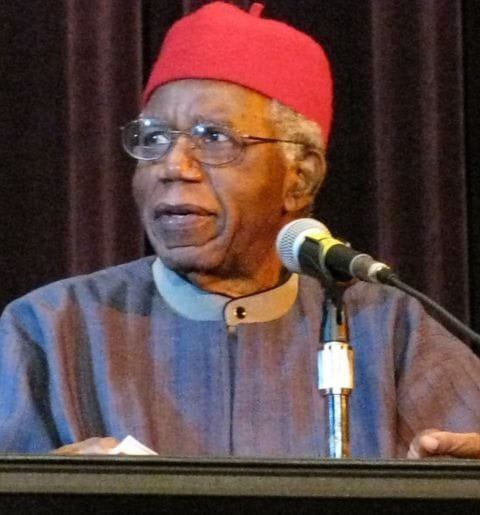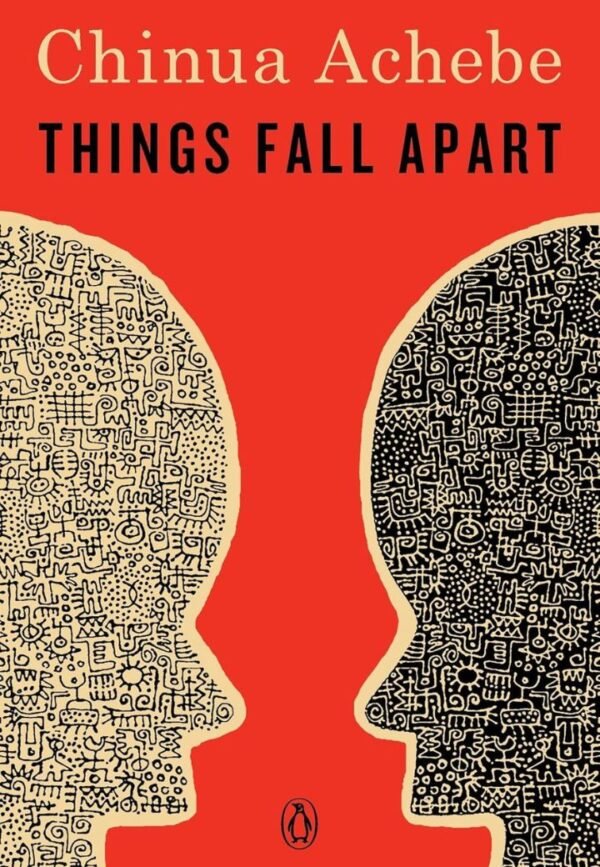
Chinua Achebe
Chinua Achebe (1930–2013) was a Nigerian novelist, poet, and critic widely regarded as one of the most influential African writers of the 20th century. Best known for his groundbreaking debut novel, Things Fall Apart (1958), Achebe is celebrated for reshaping global perceptions of African culture and history. The novel, set in pre-colonial Igbo society, explores the clash between traditional values and British colonialism through the tragic story of Okonkwo, a proud warrior whose life unravels amid cultural disruption. Achebe’s lucid prose, enriched by Igbo proverbs and oral traditions, challenged Eurocentric narratives and established him as a pioneering voice in postcolonial literature. His works, including No Longer at Ease (1960) and Arrow of God (1964), further examined Nigeria’s colonial and post-independence struggles, cementing his reputation as a foundational figure in African literature.
Achebe’s writing combined literary innovation with incisive cultural critique. He rejected dehumanizing Western portrayals of Africa, notably critiquing Joseph Conrad’s Heart of Darkness in his essay An Image of Africa (1975), which he accused of perpetuating racist stereotypes. Advocating for African authorship, Achebe emphasized that stories about the continent should be told by those who inhabit it, blending English with indigenous narrative techniques to preserve Igbo heritage. His later novels, such as A Man of the People (1966) and Anthills of the Savannah (1987), tackled political corruption and societal fragmentation, reflecting Nigeria’s turbulent postcolonial reality. Through his essays and lectures, Achebe underscored literature’s power to confront injustice and reclaim cultural identity, influencing generations of writers worldwide.
Born Albert Chinụalụmọgụ Achebe in Ogidi, Nigeria, he grew up amidst the intersection of Igbo traditions and British colonial influence, a duality that deeply informed his work. Educated at University College Ibadan, he later worked in broadcasting and became politically active during Nigeria’s civil war (1967–1970), supporting Biafra’s secessionist movement. After a car accident in 1990 left him paralyzed, he relocated to the U.S., teaching at Bard College and Brown University. Achebe’s accolades include the Man Booker International Prize (2007) and widespread recognition as the “father of modern African literature.” Though never awarded the Nobel Prize, his legacy endures through his literary masterpieces, which remain vital to global literary discourse, and his unwavering advocacy for African storytelling.
- Novelist
- 1930-2013
- Male
- 1
-
(0)By : Chinua Achebe
Things Fall Apart
In a land where tradition sings through drumbeats and ancestral fire, Things Fall Apart follows Okonkwo, a fierce warrior haunted by fear of failure and consumed by a need to escape his father’s shame. As colonial forces creep into the Igbo world, bringing both alien faith and foreign rule, the fragile balance between honor and change begins to crack. Through stark prose and lyrical intensity, the novel confronts a painful paradox: when the old ways falter, is it strength or surrender that preserves the soul? What happens to a man—and a people—when the pillars of their world begin to crumble? Achebe crafts a haunting elegy for a culture on the cusp of dissolution, where dignity and downfall are bound in the same breath.
- Originally Published: 1958
- Publisher: Penguin Books, 1994
- Genre: Novel
- Pages: 209
- Book Type: Hardcopy
- ISBN: 9780385474542
- Access: Members

